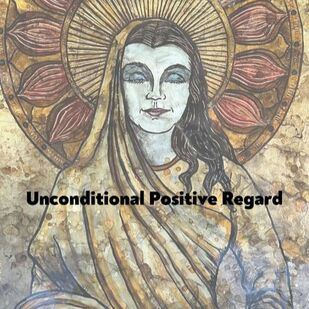|
Body-Mind-Spirit - Inspiration for Writers, Dreamers, and Seekers of Health & Happiness
 Today is my mother’s birthday. She’s been gone twelve years. In many ways, she was our family’s glue. I returned home for reunions regularly, but less so after she passed. The pandemic crimped that pattern further. It had been five years since I’d seen my nieces and nephews, and I hadn’t met their children. My husband and I finally went back East and made the rounds to four households in two states, plus squeezed in business in a third. Mom would have loved it. It’s been two weeks since our East Coast visit. Jim and I both developed colds soon after returning home. Still, we’re happy we traveled. It was a good trip. I hadn’t been on an airplane since before the pandemic, plus I’ve become more introverted these last few years, so getting out was challenging. I worried about my health (COVID and other concerns), and I fretted over ideological differences. My family is politically divided.
Before I left home, I set a clear intention to practice what humanist psychologist Carl Rogers called “unconditional positive regard,” which is acceptance and support of a person regardless of what they say or do. For Rogers, this practice applied to therapeutic settings, but I use it in my writing circles. It creates emotional safety and encourages sharing, which leads to connection. Why not practice unconditional positive regard with my family? I thought. Mostly, it worked. Love and history unite us. It helped that we didn’t discuss politics. Making space for my loved ones to be who they are created space for me to be who I am. I didn’t feel the need to prove myself or defend my ideas. Instead, I relaxed, showed up, and gave and received love—without the need to be correct and make others wrong. I often quote the Sufi poet Rumi, who says, “Out beyond ideas of right-doing and wrong-doing, there’s a field. I’ll meet you there. When the soul lies down in that grass, the world is too full to talk about. Ideas, language, even the phrase ‘each other’ doesn’t make any sense.” The “field” is consciousness, which isn’t subjugated to human interpretation or labeling. In this field, ideas of right and wrong take a back seat to our spiritual essence. Rumi reminds us that we connect with each other when we can open and let go of our ideas of good and evil, right and wrong. It was liberating to surrender the need to convince anybody of anything and rest in my self-awareness. My beliefs are valid, but so are those of my family. They have a right to their opinions as much as I have a right to mine. Still, I’m human. There were testy moments—glitches—as in any meaningful relationship. But for the most part, due to good planning—I know my limits—I stayed in that state of unconditional positive regard. It was easier than I thought. Reflecting on my experience, I realize I’m much more secure than I was in my youth (thank God). I know who I am. My identity no longer feels precarious or threatened. I don’t need to fight my loved ones or myself over ideological differences. Sure, there are times when speaking up is required, but it’s also wise to know when and how to keep quiet and listen. On our sojourn, we also visited spiritual teacher and author Michael Singer’s Temple of the Universe in Alachua, Florida. That will be another post. Stay tuned. As is often the case with fearful thinking, none of my pre-journey concerns or phobias came to pass. As I said, it was a great trip. I’m looking forward to our next one in May. We’ll be visiting our niece in New Mexico. Meanwhile, enrollment is now open for my Spring Writing Circles. Please let me know if you have any questions or want to join us.
0 Comments
Leave a Reply. |
Receive over 80 writing prompts from Where Do You Hang Your Hammock to ignite your creativity, gain clarity, and reach your personal and professional goals! You'll also receive my inspirational monthly blog/newsletter. |
“Where the spirit does not work with the hand there is no art.” —Leonardo da Vinci

